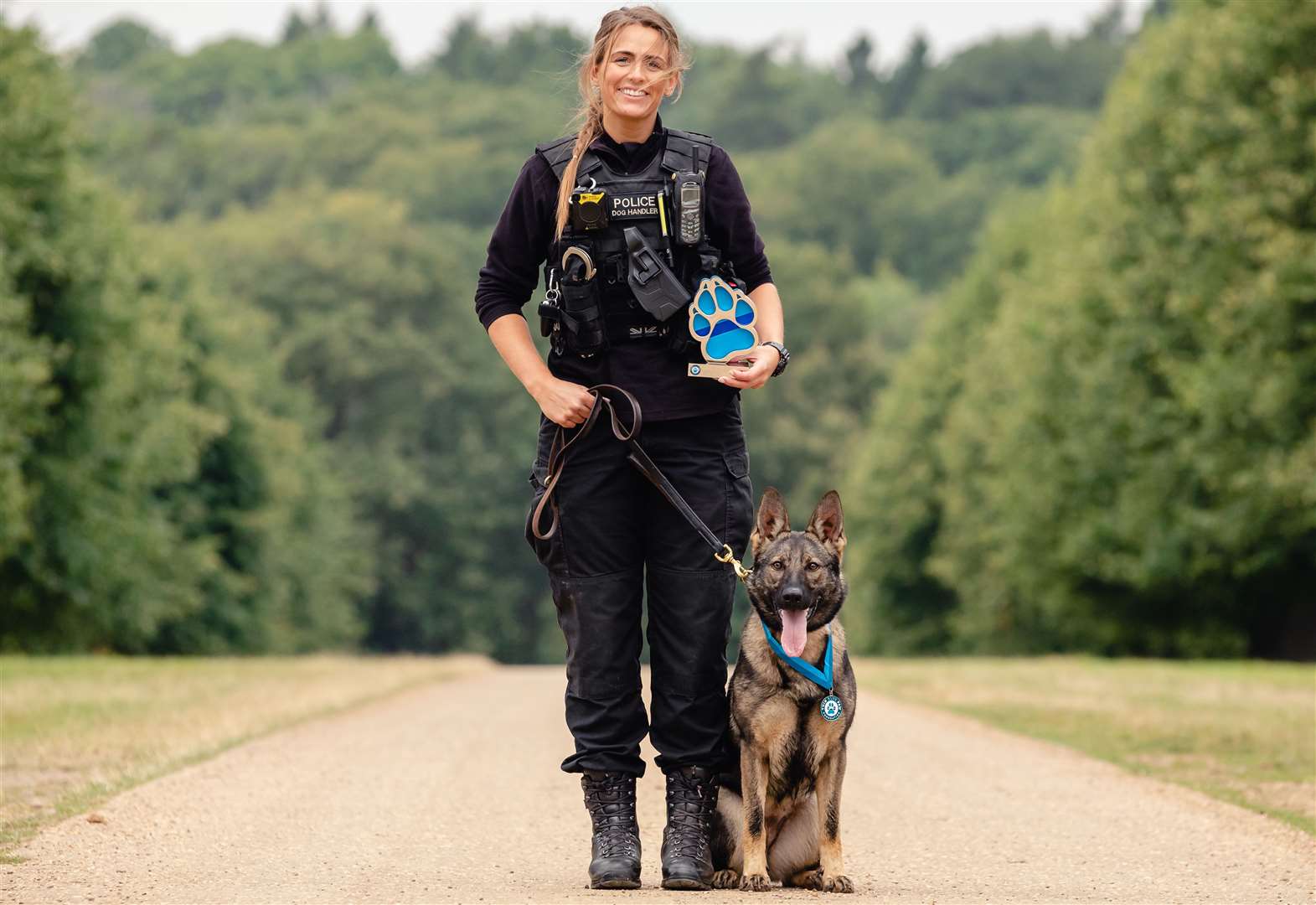
As an apprentice dog handler, you will help with the care and management of a professionally trained dog. Police, the Army, RAF, HM Revenue and Customs, fire service, search and rescue organisations, and private security services may hire dog handlers. If you like dogs and want to put your observation abilities to work, this may be the job for you.
Dogs have a part in the police force not just in specialised operations such as searching for armed persons or detecting drugs and explosives but also in everyday activities such as patrolling at football games.
Dogs are used in the Army for protection/guarding or detection, such as searching for explosives or drugs. They are used in every branch of the Army, and candidates for the Royal Army Veterinary Corps may train dogs. As a result, the canines and their handlers have an extraordinarily close relationship, both in barracks and while out on missions.
The dog’s primary duty in the RAF is to protect aircraft on military bases and in hangars. Applicants must join the RAF Police to become dog handlers. As a military working dog handler, you may specialise in Patrol Dogs, Drug Detection Dogs, Arms & Explosives Dogs, or Vehicle Search Dogs.
HM Revenue and Customs use dogs to identify illegal substances such as drugs, cigarettes, and explosives at ports and airports. Therefore, working with HM Revenue and Customs is essential before becoming a dog handler.
The fire brigade sometimes employs dogs to hunt for signs of life in burning and collapsed buildings. Search and rescue organisations deploy mountain and cave rescue dogs. Private security firms may use dogs to protect property.
Responsibilities
Throughout your apprenticeship, you may help:
- patrol premises and protect property
- search for lost or missing people
- detect drugs, firearms or explosives
- control crowds
- look after your dog in your own home
- attend training courses with your dog.
Salary
The organisation for which you work and your expertise as a handler will decide your pay. Apprentice dog handlers my earn £16,000, whilst experienced dog handlers may earn up to £30,000 per year.
Working hours and environment
A dog handler’s job is a physically demanding one that demands you to keep up with your dog throughout tough training sessions that entail a lot of walking and running. In addition, working outside in the elements may expose you to hazardous terrain and weather conditions.
Weekends, evenings, and nights are all possibilities for long and varied hours. Shifts are worked on a 24-hour-a-day, seven-day-a-week cycle. The Army and RAF personnel are called out at any time to cope with an emergency, and long hours are standard.
Some organisations, such as the police, need you to care for your dog in your own home; therefore, you must have a stable home life, and your family must agree to have a working dog in the house.
Qualifications
Qualifications you can achieve as an apprentice dog handler include:
Level 4 Animal Trainer – Entry requirements for this level include 4 or 5 GCSEs at grades 9 to 4 (A* to C) and A levels, or equivalent, for a higher or degree apprenticeship. This qualification typically takes 18 months to complete.
Skills
On a dog handler apprenticeship, you’ll learn:
- the ability to teach people and animals how to do something
- physical skills like movement, coordination and dexterity
- the ability to accept criticism and work well under pressure
- patience and the ability to remain calm in stressful situations
- the ability to work on your own
- the ability to work well with others
- to be thorough and pay attention to detail
- excellent verbal communication skills
- to be able to carry out basic tasks on a computer or hand-held device.
Career prospects and development
Advancement opportunities may vary depending on the service or organisation you work with. For example, you would not generally be a dog handler above the rank of sergeant in the police service or corporal in the Army and RAF.
Therefore if you wanted to progress in the armed forces, you would need to move on from dog-handling duties. However, if you know the service/organisation you want to work for, you may contact them to learn more about the road to this career and/or your chances of promotion.
